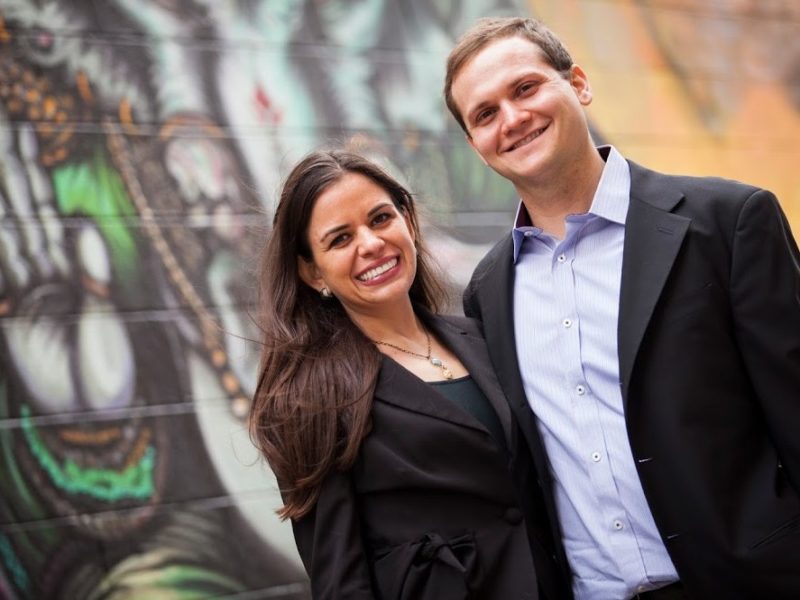
Modern-day Civil Rights Leader: Beata Leja
This week, we talked to a wide-range of modern-day civil rights leaders who are continuing the fight for equal opportunity for all Americans that Martin Luther King so powerfully gave voice to 50 years ago. Co-op member and attorney Beata Leja views the equal rights movement today through the lens of her work and legal advocacy for documented and undocumented immigrants.
 |
| Beata Leja |
Tell us about yourself and the work you are doing in civil rights today.
I work as an immigration attorney at Minsky, McCormick & Hallagan, P.C., a full-service immigration law firm in Chicago. We represent all types of clients, from individuals who seek to reunite with their families to U.S. companies and organizations that require the services of foreign workers and/or need help establishing I-9 employment verification programs and policies. Part of our practice impacts social justice in that we represent various groups of marginalized individuals, such as undocumented individuals who have been victims of crimes and domestic violence, undocumented individuals who were brought to the U.S. as children, undocumented individuals who have family ties to the US, such as US citizen or resident parents, children or spouses (family-based sponsorship, deportation defense, etc.), individuals who fear being persecuted in their own country (petitions for asylum, Convention Against Torture), amongst others. We also assist LGBT couples in taking advantage of their new right to sponsor their same-sex spouses for immigration benefits based on the U.S. Supreme Court decision to invalidate the Defense of Marriage Act (DOMA).
I work as an immigration attorney at Minsky, McCormick & Hallagan, P.C., a full-service immigration law firm in Chicago. We represent all types of clients, from individuals who seek to reunite with their families to U.S. companies and organizations that require the services of foreign workers and/or need help establishing I-9 employment verification programs and policies. Part of our practice impacts social justice in that we represent various groups of marginalized individuals, such as undocumented individuals who have been victims of crimes and domestic violence, undocumented individuals who were brought to the U.S. as children, undocumented individuals who have family ties to the US, such as US citizen or resident parents, children or spouses (family-based sponsorship, deportation defense, etc.), individuals who fear being persecuted in their own country (petitions for asylum, Convention Against Torture), amongst others. We also assist LGBT couples in taking advantage of their new right to sponsor their same-sex spouses for immigration benefits based on the U.S. Supreme Court decision to invalidate the Defense of Marriage Act (DOMA).
What do you see as the primary impact Martin Luther King had on the civil rights movement today?
Martin Luther King, Jr. continues to be an inspiration to all individuals working to advance the rights of marginalized and minority groups in our society. He provided a powerful, yet non-violent framework through which such groups can influence the opinions of the majority. His message of non-violent protest continues to be the primary method of challenging the status quo today.
Martin Luther King, Jr. continues to be an inspiration to all individuals working to advance the rights of marginalized and minority groups in our society. He provided a powerful, yet non-violent framework through which such groups can influence the opinions of the majority. His message of non-violent protest continues to be the primary method of challenging the status quo today.
What do you see as the future of the civil rights movement in 2014 and beyond?
In 2014, I hope to see Congress passing a comprehensive immigration reform bill that not only provides an avenue to lawful status for the millions of undocumented individuals living in the shadows of our society, but also establishes a smarter immigration system that attracts the best and the brightest individuals from all over the world to the U.S., that promotes foreign investment in the U.S. and that unites families currently separated by decades of backlogs under our current system.
Who do you think is the most influential and inspiring civil rights leader working today?
I admire the young undocumented individuals who have come out of the shadows to apply for Deferred Action for Childhood Arrivals or Dreamers (DACA) and to speak out on our broken immigration system. They have brought the need for immigration reform to the forefront in the last few years. They have put this issue in a new light on account of the fact that they were brought here through no fault of their own and know no other country as their own. They have risked everything, including deportation, by disclosing their status to highlight this issue in an effort to motivate Congress to act.




